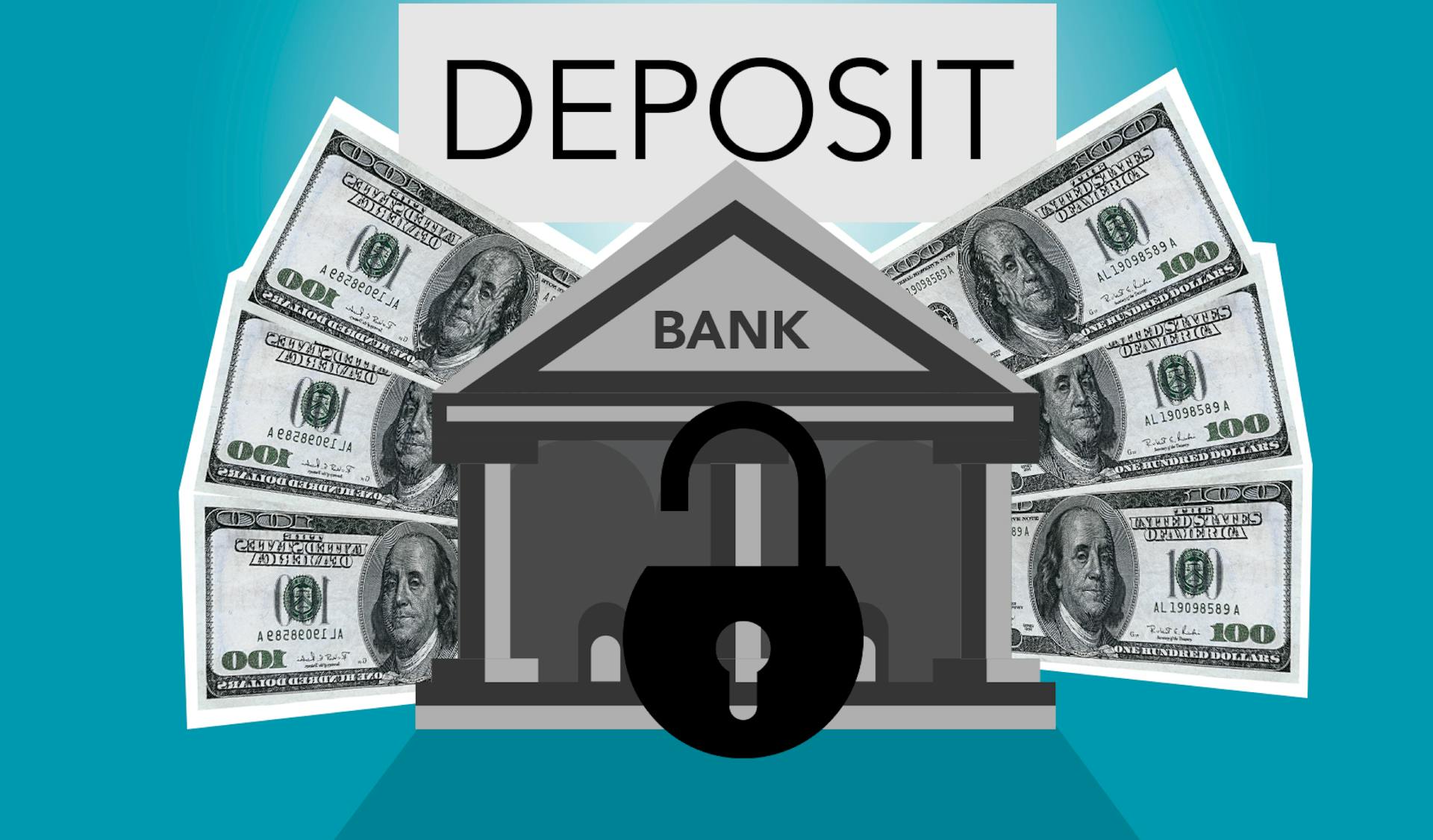
A jumbo fixed mortgage is a type of mortgage that exceeds the standard lending limits set by Fannie Mae and Freddie Mac, typically above $510,400. This means that borrowers who need to finance a home purchase or refinance that exceeds these limits will require a jumbo mortgage.
These mortgages are also known as non-conforming mortgages, as they don't conform to the standard lending guidelines. Borrowers who opt for a jumbo mortgage typically have a higher credit score and a more stable income.
The interest rate on a jumbo fixed mortgage is fixed for the entire term of the loan, providing stability and predictability in monthly payments. This can be beneficial for borrowers who want to budget and plan their finances accurately.
Here's an interesting read: Navy Fed Mortgages
What Is a Jumbo Fixed Mortgage?
A jumbo fixed mortgage is a type of loan that can be 30 years long, allowing you to spread out your payments over a long period.
Jumbo fixed mortgages are available with a fixed interest rate, which means your monthly payments will stay the same for the entire term of the loan.
You can also opt for a shorter term, but 30 years is the most common option.
Traditional banks can be a good option for jumbo fixed mortgages, as they may offer lower interest rates to attract well-heeled borrowers.
Banks looking to build relationships with high-end clients may offer lower interest rates on jumbo fixed mortgages as an incentive to become a client.
Related reading: Are Adjustable Rate Mortgages Bad
Advantages and Disadvantages
A jumbo fixed mortgage can be a great option for buying a high-end property, but it's essential to weigh the pros and cons before making a decision.
The primary advantage of a jumbo loan is that it allows borrowers to take out a mortgage that exceeds the conforming loan limits put in place by the FHFA, making it possible to finance a home with a considerably higher market value.
The conforming loan limit for single-family homes in 2024 is $766,550 in most of the U.S., but as high as $1,149,825 in some places. This means that if you're looking to buy a home that costs close to a million dollars or more, you'll probably need a jumbo mortgage.
Jumbo loans have stricter criteria for borrowers, requiring a higher credit score, larger income/assets, and bigger down payments. This can be a challenge for some borrowers, but it's worth it for the freedom to buy the home of your dreams.
Here are some key pros and cons of a jumbo loan to consider:
- Higher loan amounts
- Similar interest rates to conforming loans
- Less hassle than obtaining multiple mortgages
However, jumbo loans also come with some significant drawbacks. More stringent credit and financial requirements can make it harder to qualify, and higher closing costs can add up quickly. Additionally, the mortgage interest deduction is limited to the first $750,000, which may not be enough to cover the entire loan amount.
In some cases, a piggyback loan can be an alternative to a jumbo loan, but it requires two separate mortgages and can be difficult to refinance. It's essential to carefully consider your options and choose the best fit for your financial situation.
Overall, a jumbo fixed mortgage can be a great option for buying a high-end property, but it's crucial to understand the pros and cons before making a decision.
Costs and Requirements
Jumbo loans are more expensive to acquire, with closing costs and origination fees calculated on a percentage of the sale, adding up quickly on higher-priced properties.
Borrowers also face stricter credit requirements, typically needing a higher credit score, possibly a higher income, down payment, or more assets than for a conforming loan. For example, U.S. Bank calls for a minimum 740 credit score to be considered for a jumbo loan.
Jumbo loans require a significant down payment, typically 10 percent to 20 percent (and sometimes more), with lenders often asking for enough reserves to cover between six and 12 months' mortgage payments.
Consider reading: Current Mortgage Rates for 800 Credit Score
Higher Costs
Jumbo loans are more expensive to acquire, with closing costs and origination fees typically calculated on a percentage of the sale.
This adds up quickly on higher-priced properties, making jumbo loans a costly option for borrowers.
Borrowers of jumbo loans get fewer tax breaks on larger mortgages, which can impact their overall financial situation.
In 2024, the mortgage interest deduction cap was $750,000 for properties purchased after Dec. 16, 2017.
Down Payments
You can obtain a jumbo loan with a down payment as low as 10%. Jumbo loan issuers typically require at least 10% down, and some require down payments as high as 30%.
Lenders require private mortgage insurance (PMI) premiums when down payments are less than 20%. If you put down less than 20% on a jumbo loan, you should expect to pay PMI.
In some cases, you may be able to obtain a jumbo loan with a down payment as low as 10%. Jumbo loan down payments usually start at 10%, but depending on your other assets, you could be required to put down more.
Making a higher down payment can have advantages, such as avoiding the cost of private mortgage insurance (PMI). Anything lower than a 10% down payment and you're probably going to pay for it in higher rates.
Worth a look: Low down Payment Conventional Mortgage Loan
Cash Reserve Requirements
Lenders often require a significant cash reserve to minimize the chances a borrower will miss payments on a jumbo loan.
This can be as much as 12 months of loan payments, which is a substantial amount of money.
Having ample cash in the bank can make you more likely to be approved for a jumbo loan.
Lenders may ask jumbo loan borrowers to show they have enough cash reserves to cover up to one year of mortgage payments.
A different take: Whats a Balloon Loan
Conforming Limits
The limit on conforming loans is $806,500 in most areas of the country, but can be as high as $1,209,750 in certain high-cost areas, including Alaska and Hawaii.
In 2025, the conforming loan limit for one-unit homes in most counties nationwide is $806,500.
High-cost areas, especially in the Northeast and on the West Coast, have conforming loan limits expanded up to $1,209,750.
You can check the conforming loan limit for any county in the U.S. using the interactive map provided by the FHFA.
For 2024, the conforming loan limit on a single-family home loan for the vast majority of counties in the U.S. is $766,550.
The maximum conforming loan limit for 2024 is $1,149,825, which applies in Alaska, Hawaii, Guam, the U.S. Virgin Islands, and in counties of the lower 48 states where the nation's median home costs are highest.
You might like: Mortgage Loans with No Closing Costs
Eligibility and Qualification
To qualify for a jumbo fixed mortgage, you'll need to meet the lender's requirements, which can be stricter than those for conforming mortgages. Typically, lenders require a FICO score of 740 or higher, although some may accept scores as low as 660.
Your income will also be scrutinized, and you'll likely need to have a large income and a low debt-to-income (DTI) ratio, with outgo not exceeding one-third of your incoming. A DTI ratio of 45% or lower is generally preferred, although some lenders may accept ratios up to 50% in certain cases.
You'll also need to demonstrate sufficient cash reserves, with at least two months of reserves required to show the lender you can keep up with mortgage payments.
Check this out: Mortgage Servicing Ratio
How to Qualify
To qualify for a jumbo loan, you'll need to meet the lender's guidelines, which can be stricter than those for conforming loans. Jumbo lenders typically require a FICO score of 740 or higher, but some may accept scores as low as 660.

Your credit score is a crucial factor in getting approved for a jumbo loan. A FICO score of 700 or higher is usually required, and some lenders may even require scores as high as 760. To give you a better idea, here are the typical credit score requirements:
You'll also need to have a low debt-to-income ratio, which is the percentage of your monthly income that goes towards debt payments. Typically, lenders require a DTI ratio of 45% or less, but some may accept ratios as high as 50%.
Intriguing read: Market Fixed Income
Higher Down Payment
A higher down payment can be beneficial when it comes to jumbo loans, but it's not always necessary. In fact, you may be able to obtain a jumbo loan with a down payment as low as 10%.
Jumbo loans typically require at least 10% down, and some may even require down payments as high as 30%. If you put down less than 20% on a jumbo loan, you can expect to pay private mortgage insurance (PMI).
Jumbo loan issuers typically require at least 10% down, and some require down payments as high as 30%. This is in contrast to conforming loans, which may accept down payments as low as 3%.
Making a higher down payment can also help you avoid paying PMI, which can save you money in the long run.
Comparison and Features
With a jumbo loan, you can borrow more money than with a conforming loan. You'll need a higher credit score, possibly a higher income, down payment, or more assets to qualify.
A jumbo loan offers an increased purchase limit, allowing you to buy higher-priced properties. You can enjoy a competitive rate for these higher-priced properties.
These loans don't adhere to specific criteria followed by Fannie Mae and Freddie Mac, making them nonconforming loans. This means you'll have more buying power with a jumbo loan than with a conforming loan.
To qualify for a jumbo loan, you'll need a higher credit score, typically 740 or above, compared to a conforming loan which may require a 620 credit score.
A fresh viewpoint: Current Mortgage Rates for 700 Credit Score
Frequently Asked Questions
Is it harder to get a jumbo mortgage?
Yes, it's generally more challenging to qualify for a jumbo mortgage due to stricter lender standards. However, with a strong financial profile, you may still be eligible for a jumbo loan.
Why would someone want a jumbo loan?
You may need a jumbo loan if you're purchasing a high-end home in an area with a high cost of living or seeking a more expensive property. This type of loan allows you to finance a larger purchase than a traditional conforming loan.
Sources
- https://www.investopedia.com/terms/j/jumboloan.asp
- https://www.nerdwallet.com/article/mortgages/jumbo-loans-what-you-need-to-know
- https://www.bankrate.com/mortgages/what-is-jumbo-mortgage/
- https://www.experian.com/blogs/ask-experian/what-is-a-jumbo-loan/
- https://www.usbank.com/home-loans/mortgage/jumbo-mortgages.html
Featured Images: pexels.com


